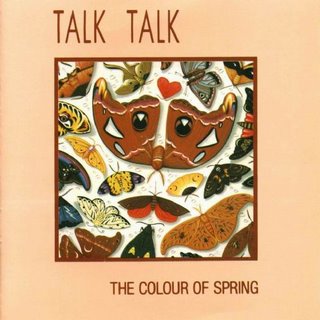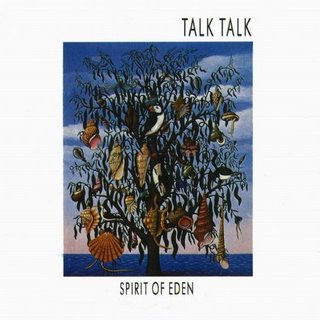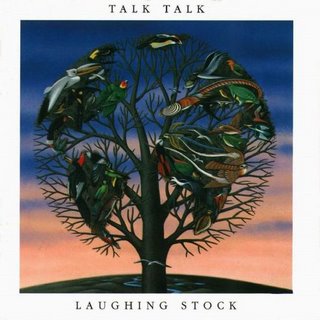Damien Rice
Everything you would expect from second album of Damien Rice. He is aware of a thin line between a good song and a pathetic crap.
Compare it to his first thriving album:
Top 100 albums of the Poultry



The Colour of Spring (1986)
After the succes of the previous record „It’s My Life“ they started to record another album with huge budget. Their record company expected another radio-friendly pop with highly rotating singles. But Talk Talk went to the different direction. You can still hear the zeitgeist of the eighties on it – electric fuckfish drums, but the synthetisers are used only for shading the music. The band, consisted of Mark Hollis (vocals, piano, organ, guitar, melodica,variophon, mellotron), Paul Webb bass, Lee Harris drums and producer Tim Friese-Greene piano, organ, variophon, kurzweil, mellotron, started to mix different elements and styles of music in one consisted complex which is above the genres. If the previous records were basicly pop songs for radios, their succesor is floating in „different waters“. Acoustic guitar, piano, double bass, harp and other colourful instruments were used for that jazz influenced music. It’s not a jazz music or blues, it’s still pop-rock which is arranged to sound like a jazz/blues record. However the the songs on this album are still balancing between two sides, like the band is not decided yet if they wanted to be jazzy pop-rockers or experimentating mood swingers. Three songs from „The Colour..“ could be defined as masterwork: „Happiness is Easy“ with beautiful mellotron arrangements (strings) and children choir, „April 5th“, warm and optimistic sad song and „Chameleon Day“, an intimate dark song. The rest is still on the another side, which doesn’t mean it‘s crap.
The Spirit of Eden (1988)
Spirit of Eden, that’s 41 minutes of magnificence. I remember the feelings I had when I’ve heard the album for the first time. The opening lines of „The Rainbow/Eden/Desire“, violins, piano, muted trumpet and guitar noises. I wasn’t sure if I am listening to Talk Talk, because the only record I knew before was „It’s My Life“. That intro was so beautiful that I was absolutely thrilled, then the killer guitar riff came to shiver and I fell in love. Can hardly describe the feelings I had by the words. It’s adventurous listening, coz you don’t know what’s going to happen next. It’s unpredictable. The wall of sounds which is dissapearing into solo for two clarinets or few seconds of total silence. The beauty of the music is almost tangible but nobody can reach it. They are calmly whispering, interlacing masses of the instruments into intimate music(rainbow/eden), storming with guitar feedback and wall of percussions (desire) or sadly swinging into the monumental melodies (inheritance) without descent into the pathos. If the first four track of album are keeping you uptight, than the rest two (believe in you/wealth) are pure catharsis.

Laughing Stock (1991)
Probably their best album. Their sound is now defined. It’s a logical succesor of The Spirit of Eden, the only changeover is in the way how they are manipulating with harmonies. There is more disonance and chaos, more sadness and elaboration. The arrangements are so refined that is absolutely impossible to play the album live.(They toured for the last time in 1986) It sounds too freeform, but the more I’ve listened to the album, the more I’ve realised how carefully constructed it is. While I listen to Laughing Stock, I’ve got a feeling that the musicians are in the same room with me, draw in.
Talk Talk disbanded after Laughing Stock. Mark Hollis released his only solo album in 1998. Paul Webb and Lee Harris went on to form the band .O.Rang, while Tim Friese-Greene started recording under the name Heligoland ((Heligoland (2000), Pitcher, Flask, & Foxy-Moxie (2006)). Paul Webb became Rustin Man and with Beth Gibbons (Portishead) released Out of Season in 2002. Lee Harris was also involved.
pass:for2headlesschicken